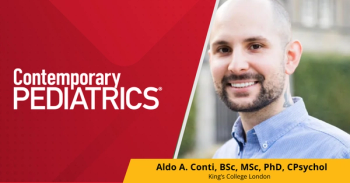
FDA grants fast track designation to SGT-501 gene therapy for CPVT
Solid Biosciences is planning a phase 1b clinical trial of SGT-501 to treat the catecholaminergic polymorphic ventricular tachycardia heart condition.
On July 23, 2025, the FDA granted fast track designation to Solid Biosciences' investigational adeno-associated virus (AAV)–based gene therapy SGT-501 for the treatment of catecholaminergic polymorphic ventricular tachycardia (CPVT), according to a press release from the company.1
The heart condition is marked by abnormal rhythms and, specifically, an abnormally fast heartbeat that can be triggered by adrenergic stimulation with physical activity or emotional stress. CPVT is typically identified in children and young adults and is estimated to affect approximately 1 in 10,000 individuals globally. The condition is caused by mutations in the RYR2 and CASQ2 genes, which disrupt calcium regulation in heart muscle cells, impairing proper heart contraction and relaxation, according to Solid.
The AAV-based gene therapy candidate is designed to deliver a functional, full-length, codon-optimized copy of the human cardiac CASQ2 gene to heart muscle cells, stated the manufacturer. Increasing CASQ2 protein levels will enhance the buffering of free calcium in the sarcoplasmic reticulum, thereby stabilizing RYR2. According to Solid, this will result in reduced diastolic calcium leak into the cytosol.
On July 8, 2025, the FDA approved SGT-501's investigational new drug (IND) application, as did Health Canada.2 The gene therapy was also granted fast track, orphan drug, and rare pediatric disease designations by the FDA and has the potential to be a first-in-class therapy to correct the underlying RYR2 instability and calcium dysregulation causes of CPVT.1
"FDA IND clearance and fast track designation provide important scientific validation of SGT-501 and recognition of the continuing and severe unmet needs posed by CPVT," stated Jessie Hanrahan, PhD, in a press release. Hanrahan is a preclinical operations officer at Solid Biosciences. "We believe SGT-501’s robust preclinical and CMC [chemistry, manufacturing, and controls] data package supports the potential for a durable and transformational treatment for a disease that has no FDA-approved therapies," Hanrahan added.
"Despite being identified nearly 50 years ago, CPVT still lacks FDA-approved therapies," said Gabriel Brooks, MD, chief medical officer of Solid Biosciences, on July 8. "This announcement reflects a critical development in the treatment of this underserved, often fatal, cardiac disease. SGT-501 offers a precision genetic approach targeting the underlying pathophysiology of the disease: abnormal calcium releases from the sarcoplasmic reticulum in an otherwise structurally sound heart."
More from Solid Biosciences
In February 2025, Solid Biosciences announced positive initial data from its gene therapy candidate SGT-003 to treat Duchenne muscular dystrophy. Results from the phase 1/2 INSPIRE DUCHENNE trial in the first 3 patients dosed revealed an average microdystrophin expression of 110%, as measured by Western blot, and improvements in multiple biomarkers that are indicators of muscle health and resilience, according to the company's announcement.3
Of the first 6 patients dosed as of the February 11, 2025, cutoff date, all 6 have reached at least 20 days post SGT-003 treatment, with the gene therapy being well tolerated, according to Solid. Adverse events were typical of those observed in AAV gene therapy, such as nausea, vomiting, fever, and transient declines in platelets in some participants.
"The data that Solid Biosciences recently announced for their Duchenne gene therapy candidate, SGT-003, are very encouraging," stated Craig McDonald, MD, chair of the Department of Physical Medicine & Rehabilitation at University of California Davis Health and investigator in the INSPIRE DUCHENNE trial, in a previous question and answer interview with Contemporary Pediatrics.4
READ MORE:
"While early, these initial 90-day data from the INSPIRE DUCHENNE clinical trial represent a comprehensive data set, encompassing 3 different measurements of microdystrophin expression as well as improvements in multiple muscle health biomarkers, many of which have not historically been shared for other Duchenne gene therapies," added McDonald.
References
- Solid Biosciences receives FDA fast track designation for SGT-501 first-in-class gene therapy for catecholaminergic polymorphic ventricular tachycardia (CPVT). Press release. Solid Biosciences. July 23, 2025. Accessed July 23, 2025. https://investors.solidbio.com/news-releases/news-release-details/solid-biosciences-receives-fda-fast-track-designation-sgt-501
- Solid Biosciences announces FDA IND and Health Canada CTA approval for first-in-class cardiac gene therapy to treat catecholaminergic polymorphic ventricular tachycardia (CPVT). Press release. Solid Biosciences. July 8, 2025. Accessed July 23, 2025. https://investors.solidbio.com/news-releases/news-release-details/solid-biosciences-announces-fda-ind-and-health-canada-cta
- Fitch J. Positive initial data reported for SGT-003 to treat Duchenne muscular dystrophy. Contemporary Pediatrics. February 18, 2025. Accessed July 23, 2025. https://www.contemporarypediatrics.com/view/positive-initial-data-reported-for-sgt-003-to-treat-duchenne-muscular-dystrophy
- Fitch J. Craig McDonald, MD, breaks down positive SGT-003 data for Duchenne muscular dystrophy. Contemporary Pediatrics. March 26, 2025. https://www.contemporarypediatrics.com/view/craig-mcdonald-md-breaks-down-positive-sgt-003-data-for-duchenne-muscular-dystrophy
Newsletter
Access practical, evidence-based guidance to support better care for our youngest patients. Join our email list for the latest clinical updates.






